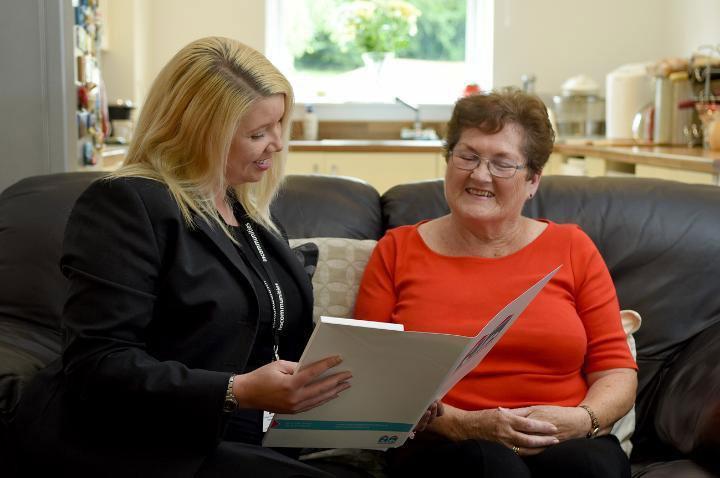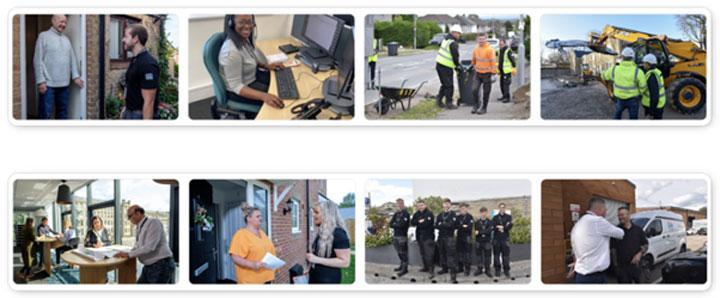
Richard Barker
Company Supervisor
Incommunities undertook the Knowledge Transfer Partnership project with the School of Management in order to increase efficiency and effectiveness in a time where government cuts continue to impact social housing. To counteract the cuts Incommunities aimed to work with the University to build a decision support system (DSS) which could be used to improve business decisions on customers and stock performance. Once the project was underway and data had been analysed the project was broadened to include data quality improvements.
Through the Knowledge Transfer Partnership Incommunities gained funding of £179,165 for two years from UK Research and Innovation (UKRI).

Incommunities will address business challenges leading to significant productivity gains by adopting an ethical and responsible data-driven AI strategy for effective operational decision-making across the organisation.
Professor Sankar Sivarajah, Dean of School of Management
Dr Takao Maruyama who is the academic lead for the project explains a KTP as a partly government funded project encouraging businesses and Universities in the UK to collaborate to find solutions, enhance knowledge and perform industry research.
The KTP project with Incommunities focuses on “Embedding Ethical Data-Driven Business Culture Through AI-Based Innovation Strategy within a UK Social Housing Provider”. With an aim of adopting an Artificial Intelligence (AI) & machine learning (ML) model based innovation strategy, in order to provide more effective support for their tenants who often suffer from problems such as unemployment and low income.
It has identified problems faced by social housing tenants such as not being able to pay rent, court cases, disrepair claims and others which the company aims to help improve and manage situations to overcome. Using Explainable AI (XAI), the KTP Associate on the project Srinidhi Karthikeyan, aims to project when such problems may occur to allow for timely solutions using a neural network with real-time attributes to make predictions and enhance tenant’s quality of life.

Takao identifies the main expectations of the project as creating machine learning models which help to predict potential outcomes and enable Incommunities to intervene and provide customer support before these situations actually occur. He also notes that building a new culture, not just within the company, but within the sector which allows employees to utilise insights from machine learning models to avoid disadvantageous positions.
The project focuses on building AI models which are to be used on an everyday basis within the company. These models focus on managing workloads whilst embedding new innovative pathways into the business culture.
Throughout the project the KTP associate and team focus on continual development, a key part of this is performing literature reviews at each stage of the project so they can understand and incorporate research happening elsewhere to apply to their work. Working with the University allows for an up to date knowledge on industry progressions.
The real benefit of the KTP is not only in the outputs; it is that the organisations eyes are opened to new possibilities. By taking time to reflect and consider how to take the business forward, the KTP brought invaluable insight that resulted in transformational change.
Dave Dickens, Director of Income and Customer Services, Incommunities.
The project developed a bespoke financial framework and established a Business Intelligence Team (BIT), who were given control to ensure the right types of data are collected.
The KTP associate who worked on the project is now employed on a permanent and full-time basis at Incommunities as the relationship continues to grow and collaborations continue to build.
Incommunities undertook the project at a point in time that was particularly challenging for them. As they continued to experience significant funding cuts, customers faced rising costs and reduced income. The KTP helped the company to achieve a £5m increase in turnover whilst saving £150,000 in fencing and fuel supplies.
Throughout the project Srinidhi has been able to continually develop and build her management and technical skills which she identified as a weak point as the project commenced. This has supported her throughout her PhD whilst giving her the experience and knowledge required and providing a spark for ideas in her PhD proposal. The project is also designed to allow Srinidhi to publish her work at each stage, providing a real “what’s next” mentality.

We are committed to ensuring customers are at the heart of our business and that the services we deliver reflect their needs. Using artificial intelligence and machine learning can help us predict and prioritise our services more effectively, reduce costs, and improve efficiencies across the business.
Jason Baines, Director of ICT and Business Intelligence
Srinidhi Karthikeyan was the acting KTP associate for the project. In her role she found there was a large focus on personal development with a budget made available to allow her to progress. She found as she started out in her role that she lacked the management and technical skills required for success on the project so researched opportunities and decided that the University offered the best opportunities for development with expert academics to help develop skills and mentor Srinidhi.
Srinidhi works with colleagues at the University to ensure the output of her work is to a high standard. She has taken the time to work with the University in order to get work reviewed and gain support in producing output. Mentors from the University allowed her to develop a high standard of output despite having little prior experience in submitting proposals, performing research or writing literature reviews which are a requirement at each step of the project.
Having access to University resources but also being able to work closely with academic experts, such as Dr Takao Maruyama, allowed for her to meet deadlines whilst continuing to produce. She found that her mentors took time to respond quickly, often within 24 hours, to ensure she is working to a good pace.
The University is committed to clean growth, in terms of our own actions but also in the research we do with our partners. This project is an example of where we are able to have a real impact using new technology, in our community, with research of significance that reaches vulnerable parts of society.
The financial framework aided the company to develop an organisational roadmap to 2025, contributing to detailed analysis of market position and organisational performance. Clarity of marketing position helped to inform decisions such as acquiring or releasing assets and expanding the area of operation.
The sustainability framework influenced a change in culture leading to them achieving their highest regulatory outcome judgements.
Incommunities hope to expand the scope of the DSS to allow them to include energy efficiency and develop training programmes further embedding their sustainability strategy into culture. By doing this staff will be able to advise customers on energy efficiency using the tools developed whilst continuing to advise on other money saving strategies.

Businesses who have worked with us have stated that one of the benefits of collaborating with the University is the access provided to our KTP office. The KTP team have put together the infographic below outlining the KTP application process.
We have also linked the Innovate UK website where you can access further information on the application process and KTP in general.
You can also email our KTP team via the email linked below.